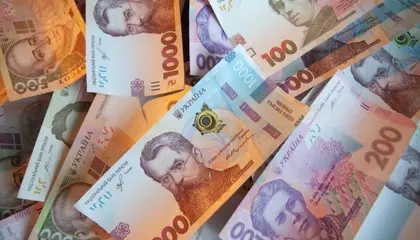Last week, foreign investors continued to rebalance their portfolios in the secondary market.
On Tuesday, the Ministry of Finance sold another portion of "reserve" bonds, the competition for which led to a significant reduction in yields. Demand significantly exceeded supply, as banks wanted to invest as much of their required reserves in interest-earning assets as possible, even at lower yields. See details in the auction review.
JOIN US ON TELEGRAM
Follow our coverage of the war on the @Kyivpost_official.
Competition in the secondary market among banks that could not purchase securities directly from the MoF was high last week. The trading of bonds maturing in December 2024 was very active and amounted to UAH1.3bn (US$36m). Paper maturing in February 2025 was traded slightly more, for UAH1.4bn (US$38m). Trading in both instruments made up 68% of last week's total turnover. Bills maturing on April 19 of this year were the third most actively traded paper at UAH0.7bn (US$19m).
Over the past week, banks expectedly increased their UAH portfolios by almost UAH6bn (US$164m), non-banking institutions purchased net UAH0.6bn (US$16m) of bonds, and individuals UAH0.5bn (US$14m). Only foreigners continued to reduce their portfolios of hryvnia-denominated bonds and by UAH0.4bn (US$11m) last week.
ICU view: This week, the Ministry of Finance will issue new bonds that banks will be allowed to use to cover part of required reserves. Therefore, the activity at the primary auction is expected to be high.

ICU Weekly Insight: Jan. 24, 2024 – FX-Denominated Bills Support State Budget
Secondary bond market statistics show many trades in short bills due this year. These deals are likely a reflection of the activity of retail clients. After a significant redemption two weeks ago, this group of investors has already restored investments in UAH government bonds, while the non-banking institutions have only partially restored their portfolios. This week, portfolios might decline again due to the upcoming significant redemption. Foreigners continue reducing their portfolios, selling bonds maturing in February 2025, and partially using proceeds to purchase bills maturing in April this year, when they can repatriate the repayments received.
Bonds: Eurobond prices falling despite new IMF program nearing approval
The situation in the global debt markets continues to remain unfavourable for Ukrainian Eurobonds, and positive signals about Ukraine’s securing more external funding have had only a moderate effect.
Over the past week, Ukrainian Eurobonds fell in price by another 2-4%, or almost one cent, to 17-23 cents. VRIs remained at the same level, slightly below 28 cents per dollar of notional value.
ICU view: Sentiment in global markets remains unfavourable for emerging markets, which remains a key factor behind the correction in prices for Ukrainian securities. This is despite several positive signals last week about the readiness of the G7 countries to provide the necessary budget financing for Ukraine for 2023, and despite clear signals that the new IMF lending program is almost certain to start this spring.
FX: Cash hryvnia continues to appreciate
The situation in the FX market remains stable, and cash hryvna continues to strengthen gradually.
In the interbank market, banks' clients (legal entities) continue to trade hard currency actively, and selling prevails over buying. However, the need for significant NBU interventions remains. Last week, total sales slid by US$55m from the previous week to US$605m.
Hard currency purchases by households exceed sales in both the non-cash and cash segments. Yet, the hryvnia continued to strengthen in retail. Over the past week, cash hryvnia gained another UAH0.10–0.17, moved from UAH39.22–39.95/US$ to UAH39.12–39.79/US$. YTD, it appreciated by more than 2%. The buy-sell spread tightened by another UAH0.07 to UAH0.67—a sure signal the market remains calm.
ICU view: Last week, in four days, bank clients (legal entities) sold more hard currency on the interbank market than they bought, which was the reason for lower NBU interventions last week. The cash market has no hard currency shortage, although households continue to buy more than they sell. A part of the cash supposedly flows into the market from withdrawal of hard currency deposits.
Research team: Vitaliy Vavryshchuk, Alexander Martynenko, Taras Kotovych
Read the full report here.
You can also highlight the text and press Ctrl + Enter






